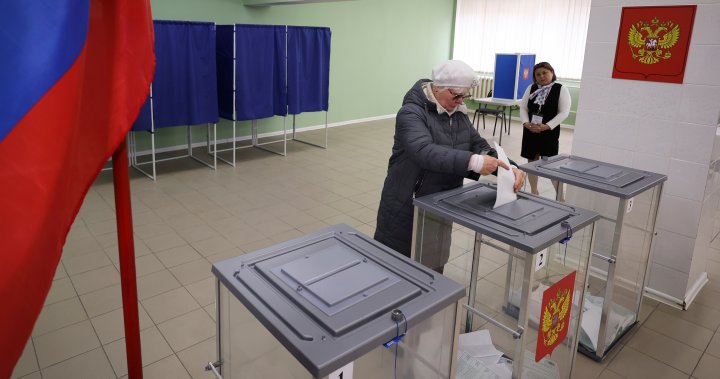Russia began three days of voting on Friday in an presidential election that is set to extend the rule of Vladimir Putin by six more years.
Two years into the war in Ukraine, Putin dominates Russia’s political landscape and none of the other three candidates on the ballot paper presents any credible challenge.
The Kremlin says Putin, in power as president or prime minister since 1999, will win because he commands support across society for rescuing Russia from post-Soviet chaos and standing up to the West.

Russia’s best known opposition politician, Alexei Navalny, died suddenly in an Arctic penal colony last month and other Kremlin critics are exiled or in jail. The opposition says the vote is a sham.
More than 114 million Russians are eligible to vote, including in what Moscow calls its “new territories” – four regions of Ukraine that its forces only partly control, but which it has claimed as part of Russia. Ukraine says the staging of elections there is illegal and void.
The email you need for the day’s
top news stories from Canada and around the world.
The email you need for the day’s
top news stories from Canada and around the world.
Putin is running against Communist Nikolai Kharitonov, Leonid Slutsky, leader of the nationalist Liberal Democratic Party, and Vladislav Davankov of the New People party. Two anti-war candidates, Boris Nadezhdin and Yekaterina Duntsova were barred from running by the electoral commission, which cited irregularities in their paperwork.
Navalny’s supporters have called on people across Russia to protest by turning out to vote all at the same time at noon on Sunday in each of the country’s 11 time zones.

They have presented the “Noon Against Putin” action as a way for people to express opposition without the risk of arrest, as they will be queuing up to vote legally. The Kremlin has warned people against taking part in unauthorized gatherings.
Putin, 71, will overtake Soviet leader Josef Stalin and become Russia’s longest-serving ruler since 18th century Empress Catherine the Great if he completes a new six-year term.
Under constitutional changes that voters approved in 2020, he would then be eligible to run again, potentially extending his rule to 2036.










